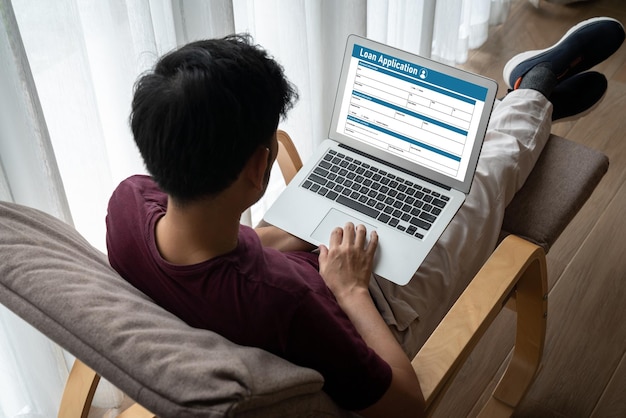Your Complete Guide to College Study Abroad Programs

College study abroad programs offer students invaluable opportunities for personal and academic growth, cultural immersion, and global perspective, but understanding the benefits, costs, and application process is crucial for a successful experience.
Are you dreaming of experiencing a new culture while earning college credit? Our complete guide to college study abroad programs: benefits, costs, and application tips will help you navigate every step of the process, from choosing the right program to preparing for your adventure.
Why study abroad? The Irresistible Benefits
Studying abroad is more than just a vacation; it’s a transformative experience that can shape your academic and personal life. Let’s explore the compelling benefits that make it such a popular choice for college students.
Academic Enrichment
Study abroad programs offer a unique opportunity to take courses not available at your home university, learn from professors with different perspectives, and gain a deeper understanding of your field of study.
Personal Growth and Independence
Living in a new environment pushes you outside of your comfort zone, fostering independence, adaptability, and problem-solving skills. You’ll learn to navigate unfamiliar situations, manage your finances, and make decisions on your own.
- 🌍 Cultural immersion and language acquisition.
- 🤝 Expanding your global network.
- 🚀 Boosting your career prospects.
The benefits of studying abroad are not just anecdotal; studies have shown that students who participate in such programs report higher levels of self-confidence, maturity, and intercultural competence.
Decoding Study Abroad Costs: A Financial Roadmap
One of the biggest concerns for prospective study abroad students is the financial aspect. However, understanding the costs involved and exploring funding options can make this dream achievable. Let’s break down the expenses and explore ways to manage them.
Tuition and Fees
Tuition costs vary widely depending on the program, destination, and duration. Some programs allow you to pay your home university tuition, while others require you to pay the host university’s fees.
Living Expenses
Living costs also depend on the location and your lifestyle. Major cities in developed countries tend to be more expensive than smaller towns or developing nations. Consider expenses such as accommodation, food, transportation, and entertainment.

- 💸 Scholarships and grants.
- 💰 Financial aid and loans.
- 💡 Budgeting and saving tips.
Many universities offer scholarships specifically for study abroad programs. Additionally, you can explore external grants and scholarships from organizations focused on international education.
Choosing the Right Program: Finding Your Perfect Fit
With so many study abroad programs available, it’s essential to carefully consider your academic goals, personal interests, and financial constraints to find the program that best suits you. Here’s how to make an informed decision.
Academic Focus and Course Offerings
Ensure that the program offers courses that align with your major and allow you to earn transferable credits. Research the academic reputation of the host university and the quality of instruction.
Location and Cultural Environment
Think about the type of cultural experience you’re seeking. Do you want to immerse yourself in a bustling city or a tranquil rural setting? Consider the language, customs, and lifestyle of the destination.
Choosing the right program involves a careful evaluation of your academic needs, personal aspirations, and financial resources. Don’t hesitate to seek guidance from your academic advisor and study abroad office.
Ace Your Application: Tips for a Successful Submission
The application process for study abroad programs can be competitive, so it’s crucial to present yourself as a strong and well-prepared candidate. Follow these tips to increase your chances of acceptance.
Meeting Eligibility Requirements
Ensure that you meet the minimum GPA, course prerequisites, and language proficiency requirements for the program. Start preparing early to address any academic or personal shortcomings.
Crafting a Compelling Personal Essay
Your personal essay is your opportunity to showcase your passion for studying abroad, your academic goals, and your personal qualities. Highlight your unique experiences, motivations, and how the program aligns with your future aspirations.

- 📝 Gather required documents and transcripts.
- ⏰ Adhere to deadlines and instructions.
- ✉️ Seek recommendations from professors and advisors.
A well-prepared application reflects your commitment, maturity, and suitability for the program. Pay close attention to detail and seek feedback from trusted sources.
Preparing for Departure: Essential Pre-Departure Checklist
The weeks leading up to your departure can be hectic, but it’s essential to take care of all the necessary preparations to ensure a smooth and stress-free transition. Here’s a checklist to guide you.
Visa and Immigration Requirements
Research the visa requirements for your destination country and start the application process well in advance. Gather all the necessary documents and follow the instructions carefully.
Health and Safety Precautions
Consult your doctor about required vaccinations and any necessary health precautions. Research the local health system and consider purchasing international health insurance.
The pre-departure phase is critical for a successful and safe study abroad experience. Be proactive, organized, and seek support from your university and program providers.
Making the Most of Your Experience: Tips for Success Abroad
Once you’ve arrived at your destination, it’s time to embrace the experience and make the most of your time abroad. Here are some tips to help you thrive academically, personally, and culturally.
Academic Engagement and Cultural Immersion
Attend all classes, participate actively in discussions, and engage with your professors. Immerse yourself in the local culture by attending cultural events, trying new foods, and interacting with locals.
Building Relationships and Overcoming Challenges
Make an effort to connect with other students, both international and local. Be open-minded, respectful, and willing to learn from different perspectives. Seek support from your program or university if you encounter any challenges.
Your study abroad experience is an opportunity for personal and academic transformation. Embrace the challenges, cultivate meaningful relationships, and explore the world with curiosity and enthusiasm.
| Key Point | Brief Description |
|---|---|
| 🌍 Benefits | Academic, personal, and career advantages. |
| 💰 Costs | Tuition, living expenses, and funding options |
| ✅ Application | Eligibility, essays, and deadlines. |
| ✈️ Preparation | Visa, health, and safety precautions. |
Frequently Asked Questions (FAQs)
▼
Studying abroad offers numerous benefits, including academic enrichment, personal growth, cultural immersion, enhanced career prospects, and the opportunity to develop a global perspective.
▼
The cost of studying abroad varies widely depending on the program, location, and duration. It typically includes tuition fees, living expenses, travel costs, visa fees, and health insurance.
▼
Consider your academic goals, personal interests, financial constraints, and desired location when choosing a study abroad program. Research program options, read reviews, and speak with study abroad advisors for guidance.
▼
The application process typically involves submitting an application form, transcripts, personal essay, letters of recommendation, and proof of language proficiency. Ensure that you meet all eligibility requirements and deadlines.
▼
Obtain a valid passport and visa, research the local culture and customs, learn basic phrases in the local language, pack appropriately, arrange for accommodation, and inform your bank and mobile phone provider of your travel plans.
Conclusion
Embarking on a college study abroad program is a transformative journey filled with opportunities for growth and discovery. By understanding the benefits, costs, and application process, and by preparing thoroughly, you can create an unforgettable experience that will shape your future in profound ways.





